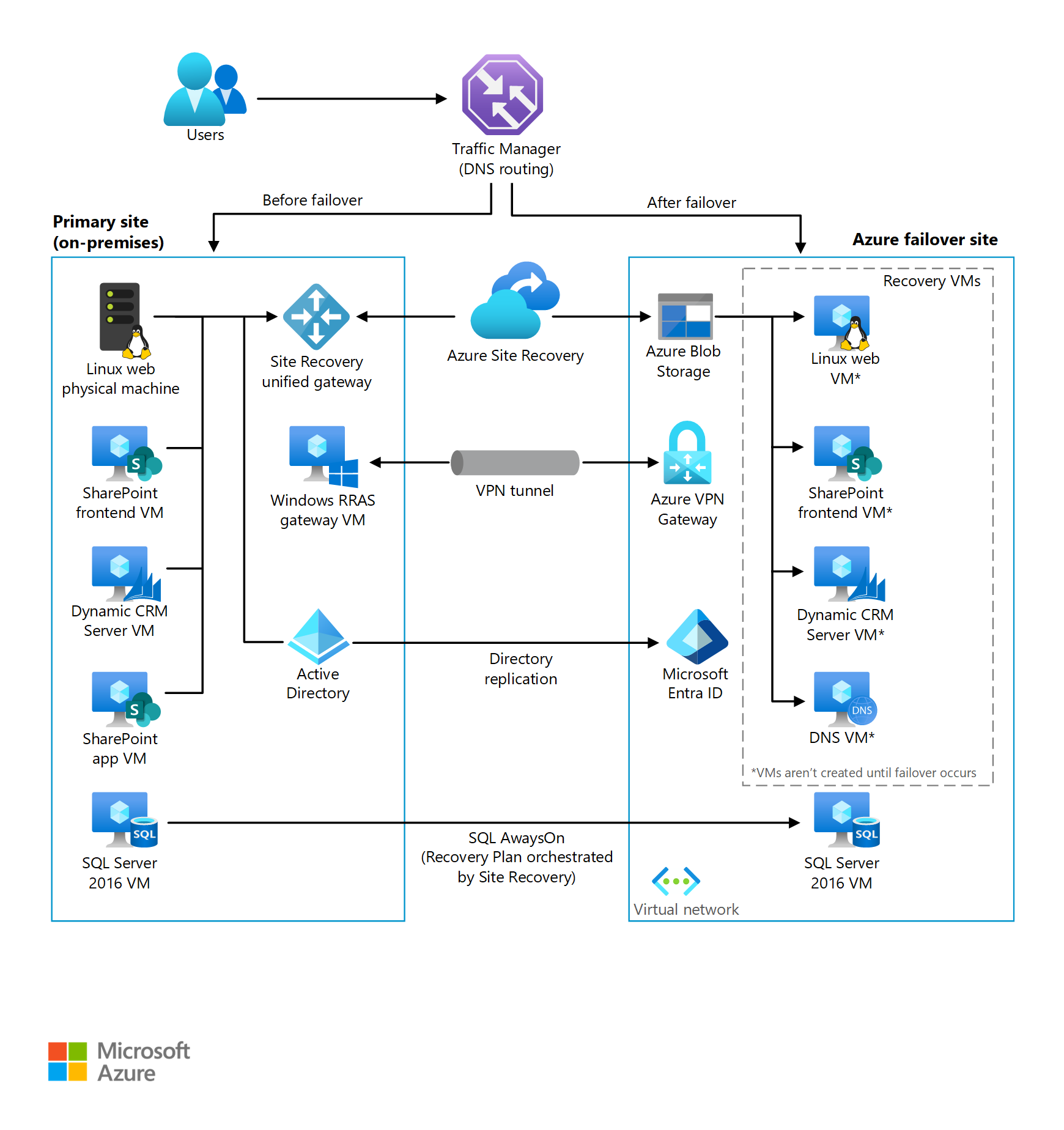Solution ideas
This article describes a solution idea. Your cloud architect can use this guidance to help visualize the major components for a typical implementation of this architecture. Use this article as a starting point to design a well-architected solution that aligns with your workload's specific requirements.
A large enterprise architecture for SharePoint, Dynamics CRM, and Linux web servers hosted on an on-premises datacenter with failover to Azure infrastructure.
This solution is built on the Azure managed services: Traffic Manager, Azure Site Recovery, Microsoft Entra ID, VPN Gateway, and Virtual Network. These services run in a high-availability environment, patched and supported, allowing you to focus on your solution instead of the environment they run in.
Potential use cases
Organizations that utilize this service include:
- Hospitals (healthcare)
- Universities (education)
- Government (local, state, and federal)
Architecture
Download a Visio file of this architecture.
Components
- DNS traffic is routed via Traffic Manager, which can easily move traffic from one site to another based on policies defined by your organization.
- Azure Site Recovery orchestrates the replication of machines and manages the configuration of the failback procedures.
- Blob storage stores the replica images of all machines that are protected by Site Recovery.
- Microsoft Entra ID is the replica of the on-premises Microsoft Entra ID services allowing cloud applications to be authenticated and authorized by your company.
- VPN Gateway: The VPN gateway maintains the communication between the on-premises network and the cloud network securely and privately.
- Virtual Network: The virtual network is where the failover site will be created when a disaster occurs.
Contributors
This article is maintained by Microsoft. It was originally written by the following contributors.
Principal author:
- Larry Claman | Principal Technology Architect
